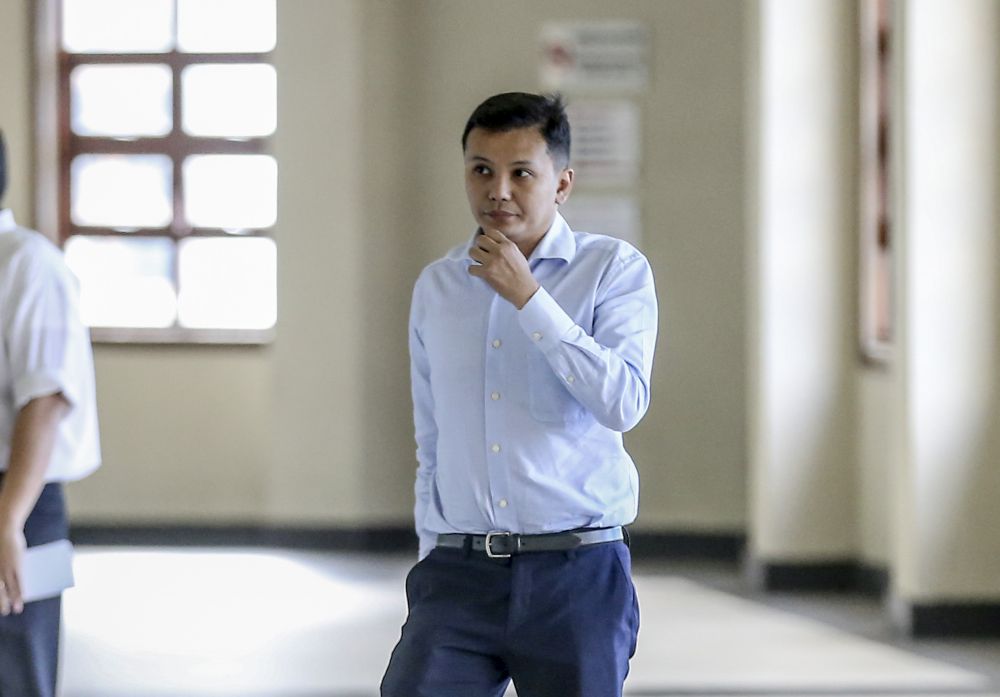KUALA LUMPUR, May 7 — Retirement Fund Incorporated’s (KWAP) two loans totalling RM4 billion to SRC International Sdn Bhd were structured as Shariah-compliant contracts for the latter to sell and buy back its assets, the High Court heard today.
Former KWAP official Amirul Imran Ahmat, 39, today confirmed at Datuk Seri Najib Razak’s trial over SRC International funds, that the civil servants’ pension fund had given out the loan via a Shariah-compliant financial facility known as Bai’ al-’inah.
Najib’s lawyer Harvinderjit Singh had asked Amirul Imran regarding the Shariah-compliant repayment method specified in KWAP’s letter of offer in 2011 for the first RM2 billion loan to SRC International.
Amirul Imran replied that this was a “KWAP standard” for loans given out.
Harvinderjit then asked if all of KWAP’s financing were “given out by way of Shariah-compliant financing”, to which Amirul Imran then replied: “Yes”.
Amirul Imran confirmed the financing documents for the first RM2 billion loan did not only involve the loan agreement or the facility agreement which stipulated interest rates over a 10-year repayment period, but also two other contracts under the Bai’ al-’inah facility.
The two other documents were an agreement for SRC International to sell its asset in the form of a stock to KWAP at the price of RM2 billion, and an agreement for the firm to buy back the same asset from KWAP at a later date with a different price of RM4,687,906,694.77 or over RM4.68 billion.
When asked by Harvinderjit if he agreed that the Bai’ al-’inah facility is “not a loan facility” but for the sales and purchase of assets, Amirul Imran replied: “Arguably so.”
Amirul Imran agreed that the agreements in 2011 for the sale and purchase of asset had both named SRC International as a “customer” instead of a “borrower”, also agreeing later that the condition under the Shariah-compliant facility was that SRC International retained no ownership over assets.
Amirul Imran at one point agreed with Harvinderjit that the Bai’ al-’inah facility was “not really a loan” if based on Shariah principles, but later highlighted that the facility agreement also has to be taken into account.
Based on information available online, Bai’ al-’inah facility is understood to be a method involving the deferred buy back of assets at a price higher than the price it was sold for, essentially acting as a Shariah-compliant substitute for conventional loans with interest that circumvents the problem of riba or unjust interest which is forbidden in Islam.
Amirul Imran is the 29th prosecution witness in Najib’s ongoing trial involving seven charges of abuse of position, criminal breach of trust and money-laundering involving RM42 million of SRC International’s funds.
Amirul Imran had said KWAP had given out loans of RM2 billion each in 2011 and 2012 to SRC International when the company was respectively a 1MDB subsidiary and wholly-owned by the Finance Ministry’s Minister of Finance (MoF) Incorporated.
Amirul Imran also testified today that the second RM2 billion loan given by KWAP in 2012 to SRC International carried the same interest rates.
He confirmed that the Shariah-compliant contracts signed as part of the 2012 financing documents was for KWAP to pay RM2 billion for five stocks sold by SRC International, and for SRC International to buy them back later at the same higher price of RM4,687,906,694.77 or over RM4.68 billion.
The 2012 financing documents included a facility agreement where the second RM2 billion loan was to be paid back over 10 years with the same rates as the first RM2 billion loan.
Today is the 14th day of former prime minister and former finance minister Najib’s first-ever trial, which will resume tomorrow morning before High Court judge Mohd Nazlan Mohd Ghazali.





















